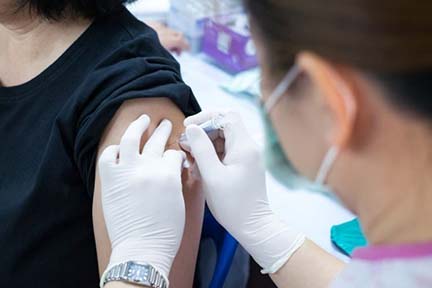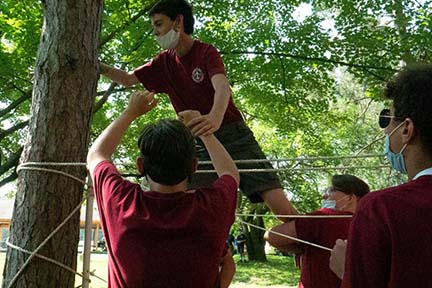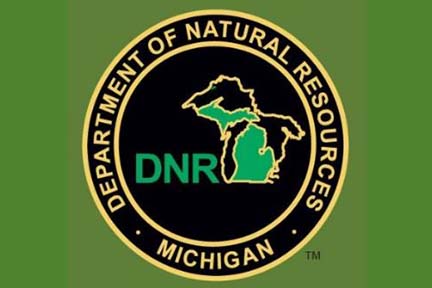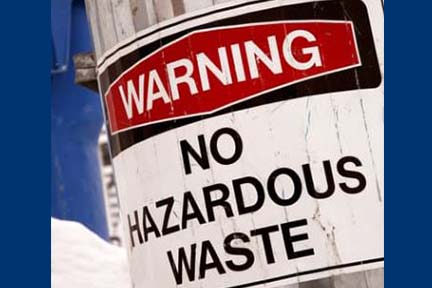| The following news release was issued earlier this morning by the Office of Gov. Gretchen Whitmer.
March 30, 2022
Contact: Press@Michigan.gov
Gov. Whitmer Signs Building Michigan Together Plan, Includes Largest Infrastructure Investments in State History
Historic, bipartisan plan invests in roads, water, high-speed internet, and makes single largest investment in state and local parks
GRAND RAPIDS, Mich. – Governor Gretchen Whitmer today signed the Building Michigan Together Plan, a bipartisan plan to invest nearly $5 billion in Michigan’s infrastructure, grow the economy, create jobs, and benefit families in every region of the state. The historic plan will improve transportation, water, and high-speed internet infrastructure in every region of the state, building on progress achieved since Governor Whitmer took office by initiating dozens projects and supporting tens of thousands of jobs across Michigan.
“The bipartisan Building Michigan Together Plan includes some of the largest investments in our infrastructure in Michigan history. With this plan, we’re building on our work to improve our roads, water, and high-speed internet. I’m particularly proud of the fact that this plan makes the single largest investment in Michigan history in our state and local parks, empowering hundreds of local economies,” said Governor Gretchen Whitmer. “I am grateful to our congressional delegation for sending us these resources and proud that the Michigan Legislature and I were able to come together to get this done and ensure our infrastructure is reliable for generations to come.
In Grand Rapids, Governor Whitmer gathered with local and state officials, outdoor recreation enthusiasts, and community members in downtown Grand Rapids to celebrate the plan’s record investment in Michigan’s local parks and recreation facilities.
More details about the Building Michigan Together Plan can be found on Michigan.gov.
“The plan’s investment in parks will benefit thousands of local parks and drive progress on ambitious and creative projects in three uniquely Michigan settings, including the Grand River Greenway in Grand Rapids,” Whitmer continued. “Together, we can take advantage of this once-in-a-generation opportunity to invest in the outdoor places at the heart of many Michigan cities and towns that encourage play, connect neighbors, and anchor communities.”
“Over the past year, the Michigan Democratic delegation has delivered for our state—passing bills that protect people from COVID-19 and rebuilding our crumbling infrastructure. Now, we are partnering with Governor Whitmer to use this funding and make meaningful investments for Michigan residents,” said Senator Debbie Stabenow. “This means fixing our roads, replacing lead pipes, and finally tackling our spotty internet service. The best part is we can do all of this all while creating good paying jobs. Bottom line: it’s a win for Michigan.”
“The United States currently ranks 13th in the world in terms of our infrastructure – which is simply unacceptable. We can and must do more to strengthen and prepare our infrastructure for the 21st century,” said Senator Gary Peters. “I was proud to help pass the historic bipartisan infrastructure law that will repair our roads and bridges, expand high-speed internet, and replace aging water infrastructure to ensure access to clean drinking water. I applaud Governor Whitmer for her leadership in helping ensure the federal resources from the bipartisan infrastructure law will bolster Michigan’s economy and create good-paying jobs.”
“Fixing the damn roads isn’t just a catch phrase for Governor Whitmer, and she’s proved that today by signing the ‘Building Michigan Together Plan’ into law,” said Congresswoman Debbie Dingell. “This bipartisan plan will take once-in-a-generation federal funding from the Infrastructure Investment and Jobs Act and invest it in rebuilding our infrastructure, growing our economy, and creating good-paying jobs in Michigan’s 12th district and across our great state. Michigan is setting an example to the nation that when we work together we can solve real problems hardworking Americans face, and I look forward to seeing the results of this transformative investment.”
“I am working hard to lower costs for Michiganders. I am proud to have delivered funds from the Bipartisan Infrastructure Law to bring billions of dollars to the state of Michigan to repair our roads and bridges, invest in the Great Lakes and expand broadband internet access,” said Congressman Dan Kildee. “This will improve our supply chains and lower costs for Michiganders. I also applaud Governor Whitmer for creating the first state park in Genesee County in Flint with this funding to help increase access to public spaces for people in urban area,” said Congressman Dan Kildee. “I will continue to work with the Governor to ensure that federal funds are used to improve the lives of Michiganders.”
“For too long, Michigan workers have been left behind and our families have suffered the disastrous consequences of a shrinking middle class, unsafe drinking water and the climate crisis. The Building Michigan Together Plan signed today by Governor Whitmer will improve our Michigan economy drastically, modernize our infrastructure and create good-paying, union jobs that cannot be outsourced,” said Congressman Andy Levin. “I am proud to have voted for President Biden’s American Rescue Plan and Infrastructure Investment and Jobs Act that are making these investments for Michiganders possible. Let’s go!”
“Michiganders in the 13th Congressional District and across the state will benefit greatly from the Building Michigan Together Plan,” said Congresswoman Rashida Tlaib. “I am proud that Governor Whitmer and our state leaders came together to pass a plan to deliver billions in federal stimulus dollars, including those from the American Rescue Plan Act to our residents and communities. I look forward to continuing to ensure that both our federal and state governments work together to ensure that everyone has the opportunity to thrive.”
“Governor Whitmer’s Building Michigan Together Plan will be transformational for Michiganders and all our communities. For far too long, we’ve heard a lot of talk about fixing our infrastructure. It’s exactly why I was fighting so hard in Congress to pass the Bipartisan Infrastructure Law,” said Congresswoman Brenda Lawrence. “Now, federal funding and resources are coming to Michigan so that we can replace lead pipes, fix our roads and bridges, and invest in our state’s future. Today, we are delivering the package for Michiganders.”
“This is an exciting day for our community. For years we have envisioned the expansion of our riverfront park system and linking all of our riverfront green spaces together with a recreational trail that also connects regionally. This substantial investment from the state will allow us to do just that,” said Grand Rapids Mayor Rosalynn Bliss. “It will transform public spaces throughout our community, which will have far reaching social, recreational and economic benefits for generations to come. I am extremely grateful for Gov. Whitmer, Rep. Albert, Sen. Huizenga, Sen. Brinks and all of our state partners for their investment in this transformative project.”
“People’s need for nearby, welcoming outdoor places where they could safely spread out and stretch out during the COVID pandemic shined a very bright light on the tremendous value of parks, trails and green spaces everywhere in Michigan,” said Ron Olson, Chief of the Department Natural Resources Parks and Recreation Division. “Unfortunately, the ability to invest in these recreation resources hasn’t always kept up with the demand and essential infrastructure needs and today’s record investment will help close that gap.”
Building Michigan Together Plan
The bipartisan Building Michigan Together Plan includes some of the largest infrastructure investments in Michigan history. The plan will protect clean drinking water, begin dozens of new road and bridge projects, build more affordable housing, expand high-speed internet, improve state and local parks, and support tens of thousands of jobs. More details can be found on Michigan.gov.
Grand River Greenway
The Grand River Greenway is a great illustration of the types of projects to be supported by the Building Michigan Together Plan’s record investment. Once complete, it will connect tens of thousands of residents to the Grand River and the area’s regional recreation system, which is built around the principle that a connected city and region – with more access to parks, housing, businesses and each other – is a thriving place.
Downtown Grand Rapids Inc. will work with local partners to guide investment of the funds and help achieve two critical community goals:
- Rehabilitating and expanding the public park system along the riverfront in the urban core.
- Building nonmotorized public trail segments that better connect people to riverfront parks and the regional trail system.
Biggest Local Parks Investment Ever
The Building Michigan Together Plan’s will invest in several notable local parks project across Michigan, including:
- Grand Rapids: $55 million to expand the Grand River Greenway into Kent County and Grand Rapids, a project that will revitalize the downtown area with 26 acres of new and rehabbed urban park space, increased public access to the Grand River and development of 28 miles of interconnected community trails.
- Detroit: $60 million to develop the Joe Louis Greenway, a nearly 30-mile, interconnected biking and walking trail system – extending from the Detroit Riverfront to Highland Park, Dearborn and Hamtramck – that will help revitalize and green Michigan’s largest urban center.
- Upper Peninsula: $20 million to fund development of a variety of rural outdoor recreation projects, including a new ski jump at Copper Peak, in the U.P.
In addition to these banner projects, the plan will invest $65 million, administered by the Michigan Department of Natural Resources, in grants to local community parks for infrastructure needs. The program will help support the 4,000+ local parks and trails across Michigan. The grant program for local park facilities will be especially meaningful to the more than 3,000 members of mPARKS, the statewide recreation and park advocacy association that strongly supported passage of the funding bill.
Economic Benefits of Parks
Parks and recreation facilities are a big part of Michigan’s economy, generating value for surrounding communities, creating jobs and helping sustain small businesses. Michigan’s outdoor recreation industry supports billions in state Gross Domestic Product and sustains 126,000 jobs and over $4.7 billion in wages and salaries in the state.
On average, every $1 invested in land conservation leads to $4 in economic benefit, meaning the Building Michigan Together Plan’s $200 million will yield $800 million in economic benefits for families, small businesses, and local communities. |







